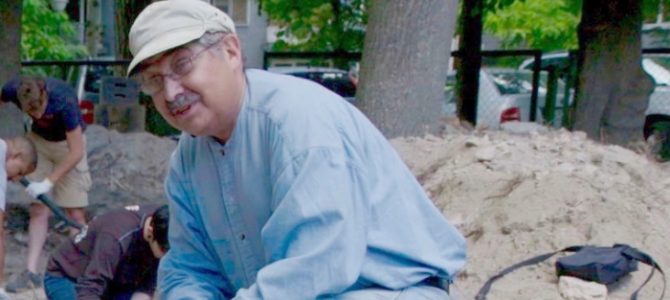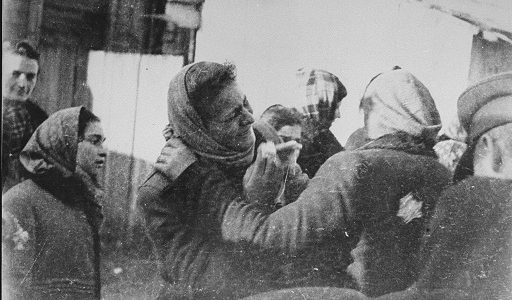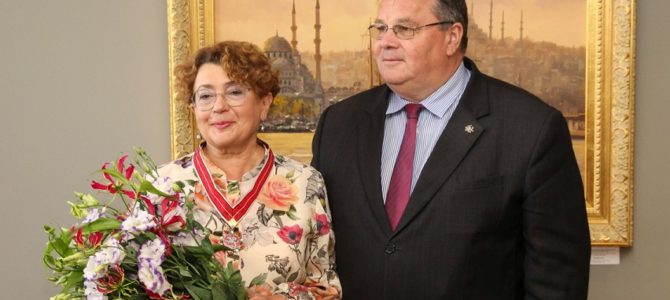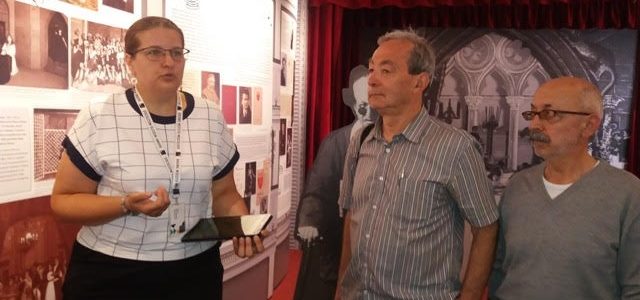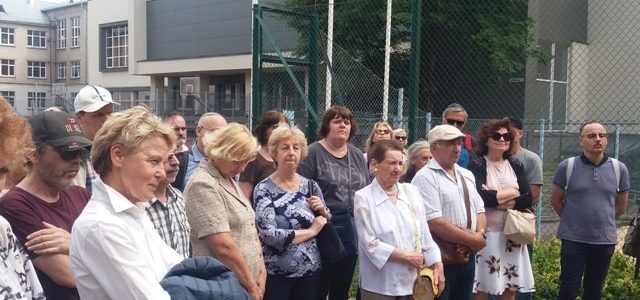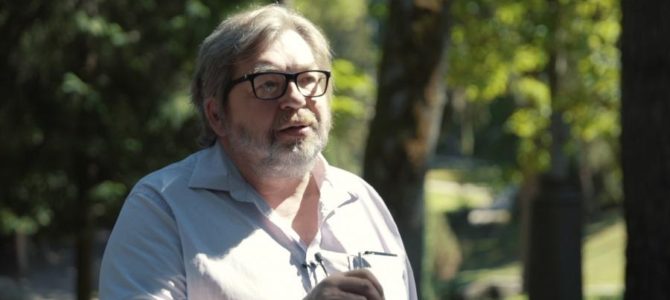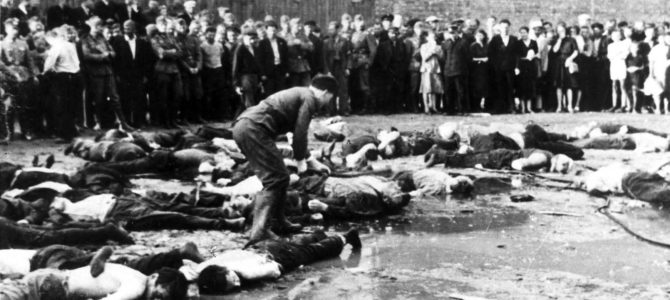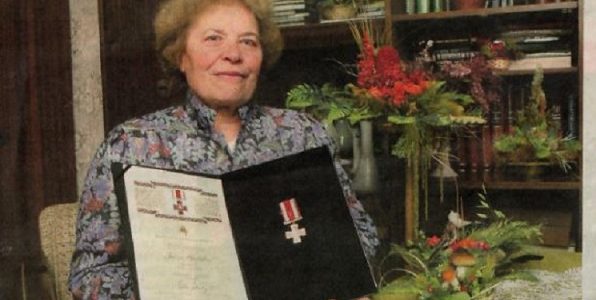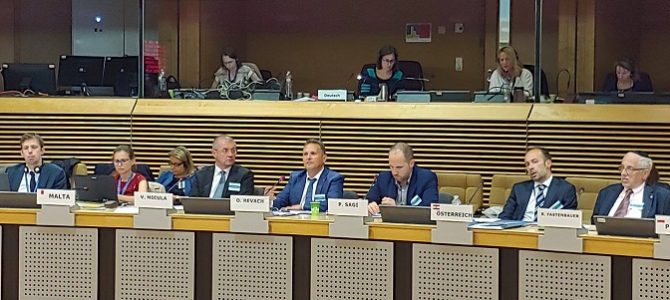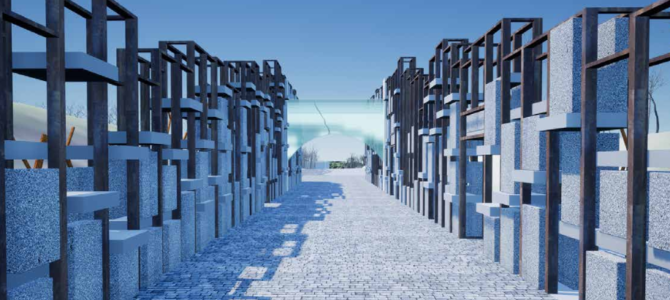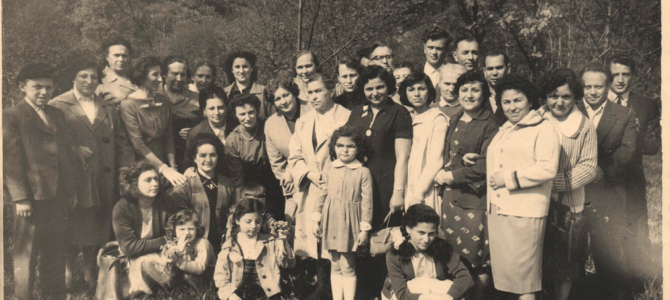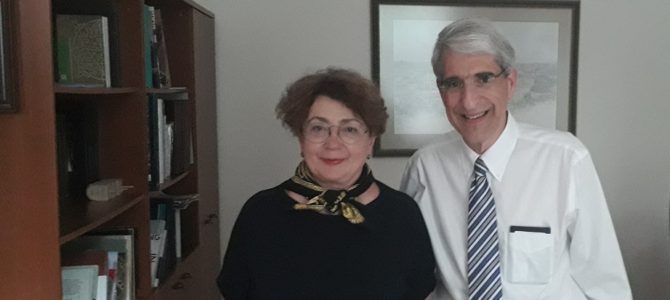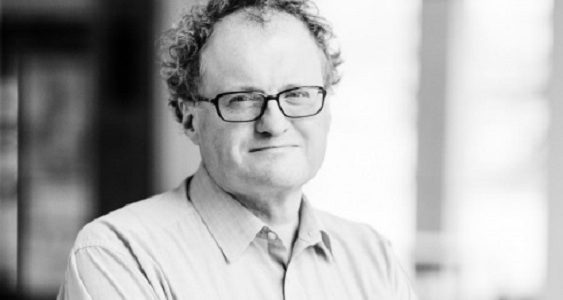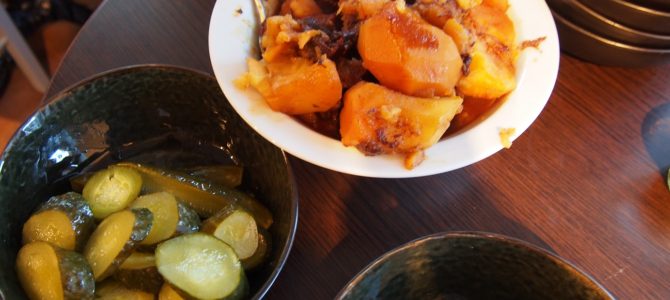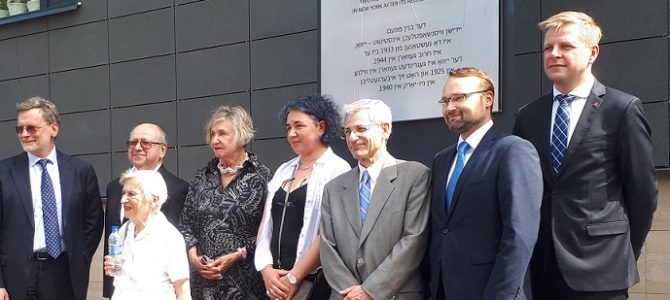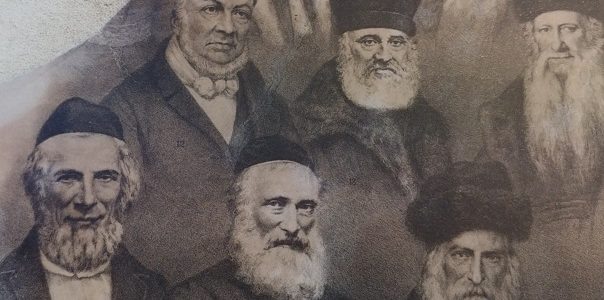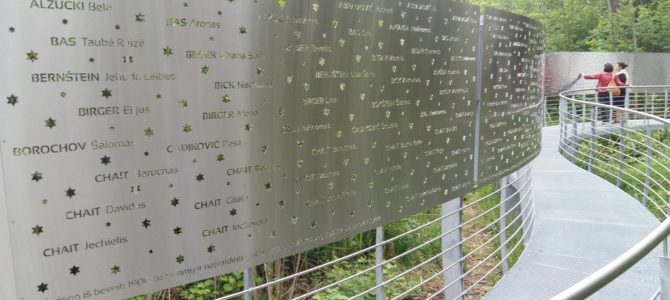(Miami, July 7, 2019)—This summer a team from the University of Hartford is working to locate the lost shtetl of Rumšiškės (Rumsheshok) in Lithuania, which is now located under Lake Kaunas. Home to approximately fifty Jewish families who were massacred in 1941, the village was abandoned and the Soviets later created a dam, resulting in the village’s remains now being under water. Filming throughout the process will document the work, which will result in a documentary film, museum exhibitions, and presentations in Lithuania and the U.S. Targum Shlishi’s grant is helping to support the five-person student team, which is led by archaeologist Richard A. Freund, a professor at the University of Hartford who has headed the university’s Vilna Excavation Projects for the past four years.
Project Background and Scope
“This is a unique program for students to work on. The students will document our summer excavations and create a documentary film that will show our underwater search for the lost village of Rumshishok,” Freund explains. “We will be working with high-tech, robotically-operated vehicles and professional divers to find the village and we will work with our ground penetrating radar equipment to identify the location of the mass grave of the Jews of Rumshishok which will ensure that no future development can take place at that site.”


